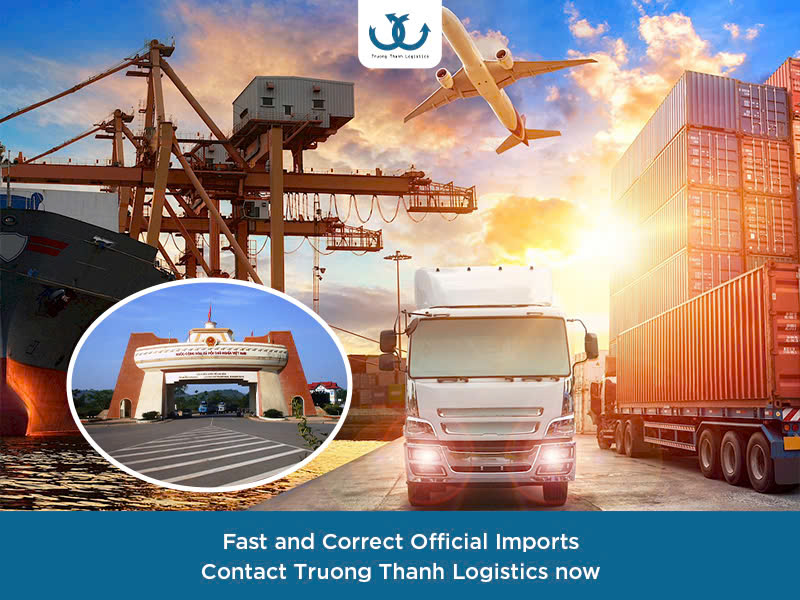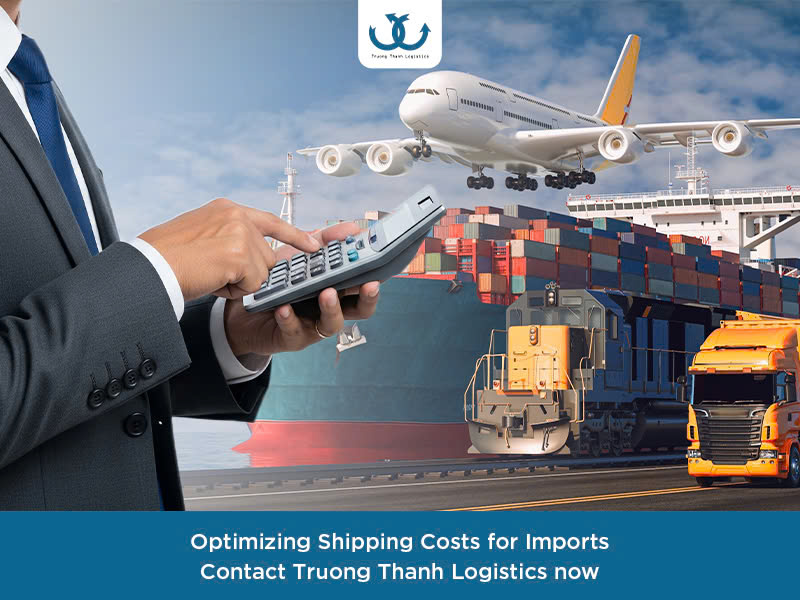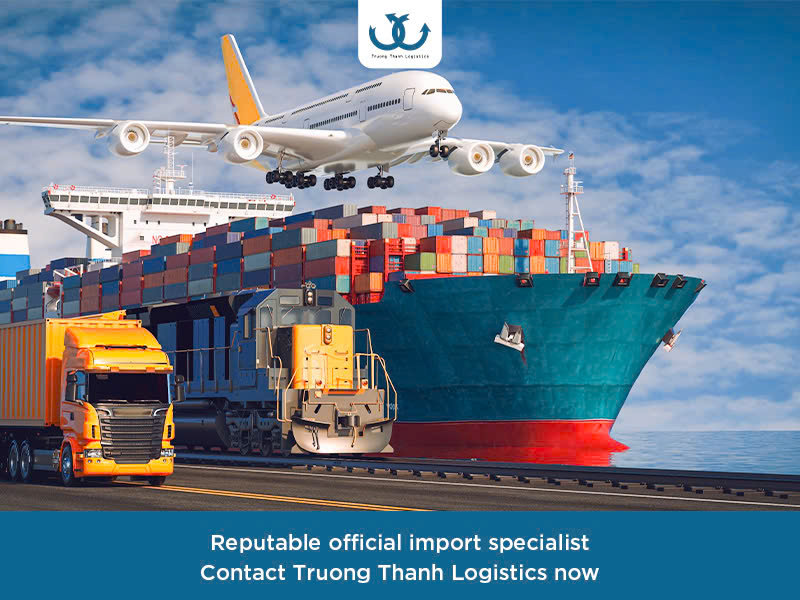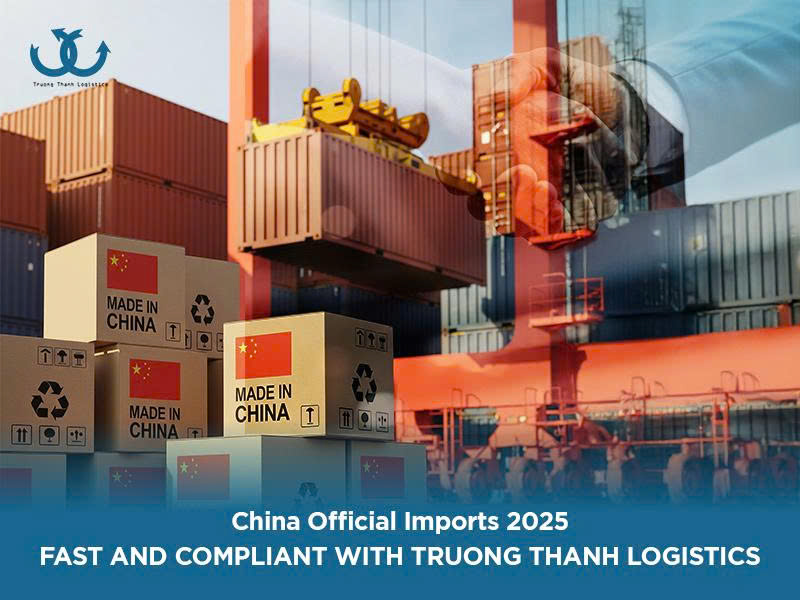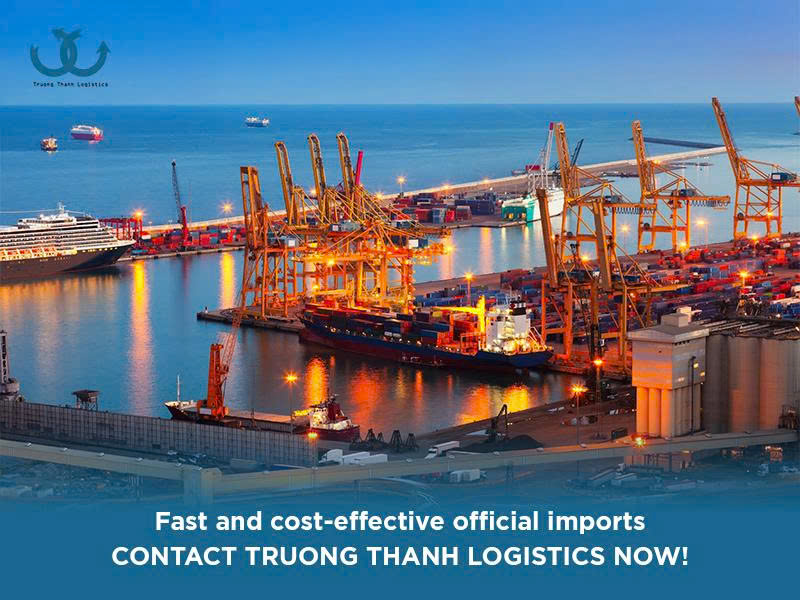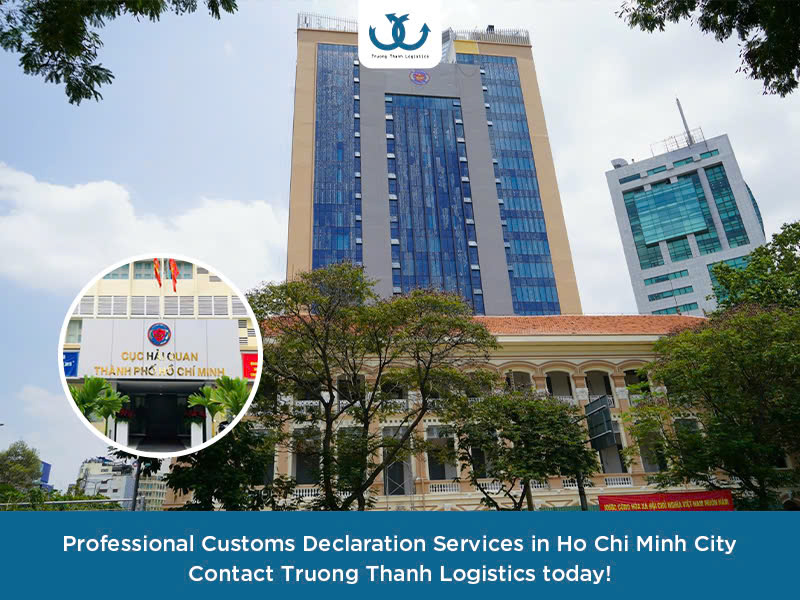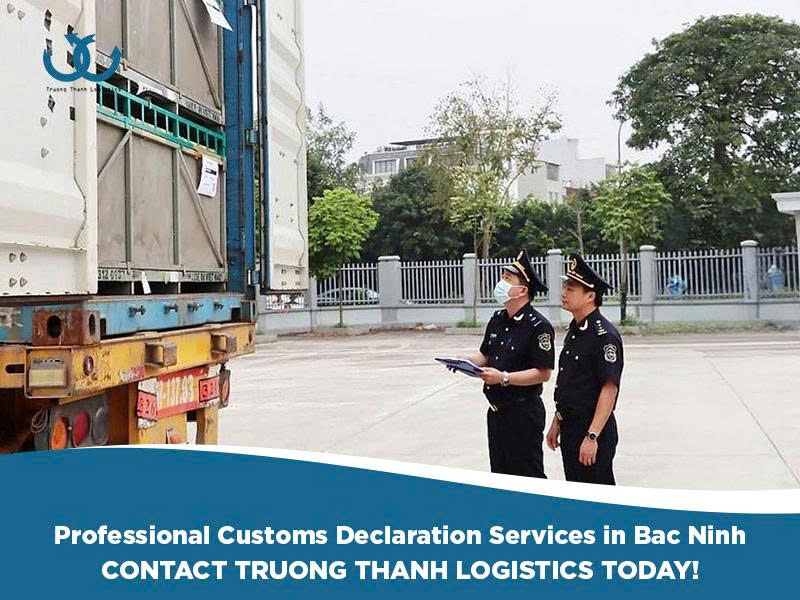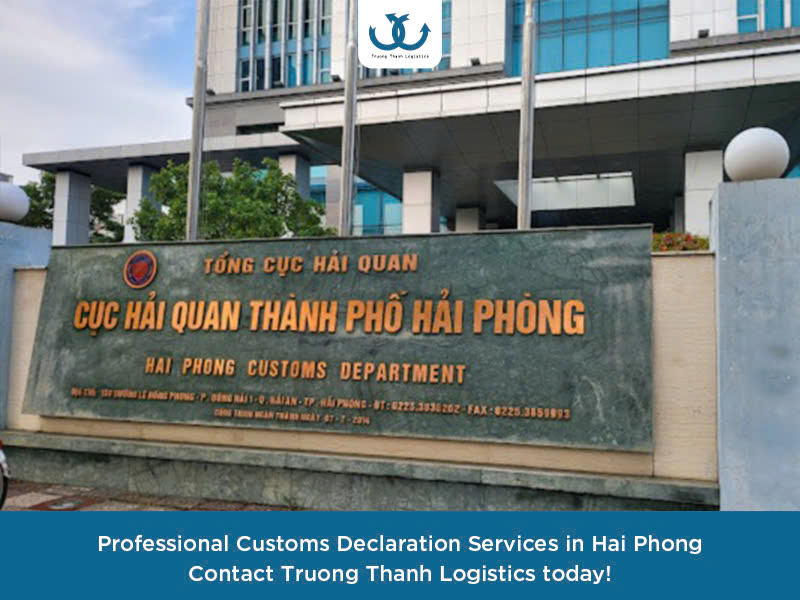The import and export of official goods are not simply about sending products from one country to another. It’s a complex process that requires close coordination among many parties: manufacturers, carriers, warehousing units, customs authorities, and certification bodies. If even one link in the chain fails—such as missing documents, a delayed vessel, or incorrect packaging—the entire shipment can be stalled, leading to significant losses in time and cost.
In this context, a freight forwarder acts as the “conductor” who orchestrates every step in the shipping chain, ensuring that goods follow the correct route, comply with the law, and reach the recipient safely and on time.
1. Who Is a Freight Forwarder and Their Role in Official Trade?
A freight forwarder is an intermediary that specializes in organizing, coordinating, and managing international freight transport. They don’t necessarily own ships, airplanes, or trucks, but they have an extensive network of partners, including shipping lines, airlines, domestic carriers, warehouses, insurance companies, and customs clearance services.
For official import/export—where all procedures must comply with both Vietnamese law and international standards—the freight forwarder’s role is to:
+ Connect all stakeholders to ensure a smooth shipping process.
+ Consult and optimize logistics solutions to save costs and time.
+ Represent the business in working with authorities, minimizing legal risks.
For businesses with limited experience in import and export, the support from a freight forwarder is often crucial.
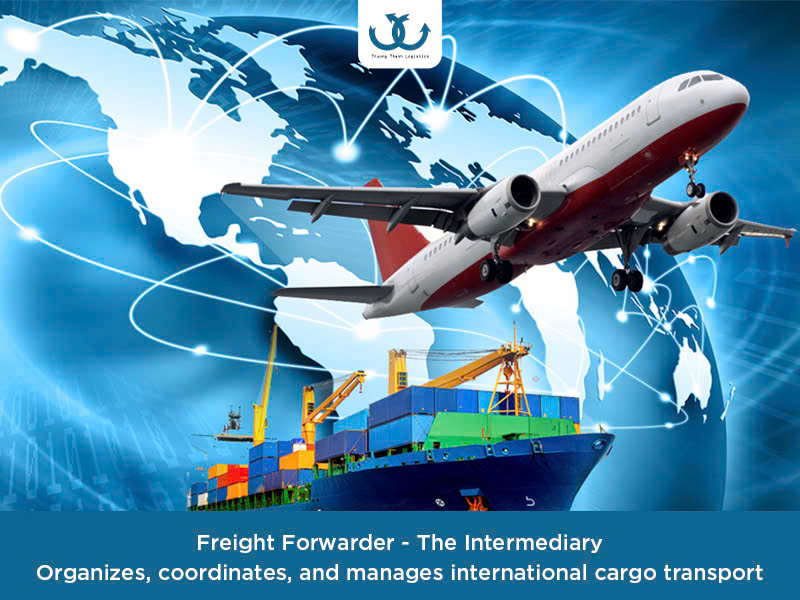
2. Coordinating Transport and Optimizing Routes
In official trade, choosing the right route and mode of transport is not just about “moving goods from point A to point B.” It is a strategic decision that directly impacts cost, delivery time, and product safety. A poorly calculated choice could double a company’s costs or delay delivery by several weeks.
The freight forwarder acts as the “architect” of the shipping journey, combining market knowledge, transportation data, and practical experience to design the most optimal route for each type of cargo.
A forwarder’s work in route coordination and optimization often includes:
+ Analyzing cargo specifics: Weight, dimensions, durability, value, and storage requirements.
+ Evaluating timing factors: Seasons, peak periods, weather, and traffic at ports and airports.
+ Calculating cost-time trade-offs: Comparing sea, air, road, or multimodal transport options.
+ Considering customs clearance feasibility: Choosing routes with faster customs procedures and a lower risk of congestion or prolonged inspections.
Practical examples:
+ High-value electronics: Prioritize air freight, with a transit time of 3-5 days, accompanied by comprehensive insurance to protect the goods’ value.
+ Fresh agricultural products: Use refrigerated containers on a short, direct route, avoiding long transits.
+ Heavy industrial goods: Choose sea freight, while optimizing packaging and container arrangement to reduce costs and ensure safety during loading and unloading.
A professional freight forwarder doesn’t just “choose a route”—they also pre-book slots during peak seasons, anticipate freight rate fluctuations, and have contingency plans ready for issues like port congestion, flight delays, or schedule changes.
Thanks to this, businesses can mitigate risks, better control costs, and ensure delivery schedules are met, even in a constantly changing international freight market.
3. Document Management and Handling
In official import and export, documents are the “passport” for the shipment. If the documents are complete, accurate, and compliant, the goods will clear customs quickly. Conversely, even a minor error—like an incorrect HS code, a missing signature, or a translation mismatch—can cause the shipment to be held, incurring storage fees and potentially damaging a company’s reputation with international clients.
A standard set of import/export documents typically includes:
+ Sales Contract: The legal basis for the transaction.
+ Commercial Invoice: Specifies the value of the goods and payment terms.
+ Packing List: Detailed information on packaging, number of packages, and weight.
+ Bill of Lading or Air Waybill: Proof of shipment and ownership of the goods.
+ Certificate of Origin (C/O): Identifies the country of manufacture for customs preferential treatment.
+ Quarantine/Quality Inspection Certificate: Required for agricultural, food, or specific types of goods.
+ Specialized Licenses: For items under special management (medical, chemical, telecommunications equipment, etc.).
A professional freight forwarder acts as a company’s “legal and administrative assistant,” ensuring all documents are prepared and processed correctly. Specifically, a forwarder will:
+ Verify the validity and completeness of the documentation before the goods are shipped/received.
+ Advise on appropriate customs declarations to avoid “red channel” inspections or prolonged specialized checks.
+ Coordinate with customs authorities to promptly resolve any issues, minimizing transit delays.
+ Store copies of documents for verification or future reference.
With a forwarder’s help, businesses can reduce errors, shorten customs clearance times, and save significantly on unexpected costs—especially storage fees, which can quickly add up.
4. Customs Clearance Support and Incident Resolution
In official trade, things don’t always go as planned. Delayed vessel arrivals, lost documents, schedule changes, or sudden customs inspections are not uncommon. Every minute of delay can lead to increased storage fees, impact delivery contracts, and even damage a company’s international reputation.
In such situations, the freight forwarder is a business’s “rapid response unit,” handling the following roles:
+ Flexible Transport Planning: Rescheduling shipments, booking new trips, or changing routes as needed.
+ Promptly informing stakeholders: Notifying customers, suppliers, shipping lines/airlines, and other parties to ensure everyone is coordinated.
+ Resolving document issues: Requesting new bills of lading, invoices, or C/Os if they are lost or incorrect; amending information in a timely manner to comply with customs and carrier requirements.
+ Assisting with customs paperwork: Providing additional documents or certificates to prove the origin or quality of goods; working directly with customs officers to provide explanations and accelerate the inspection process.
Thanks to their extensive experience and broad network of partners, a freight forwarder can minimize damages and ensure the shipment clears customs as quickly as possible, helping businesses stay on schedule and protect their international reputation.
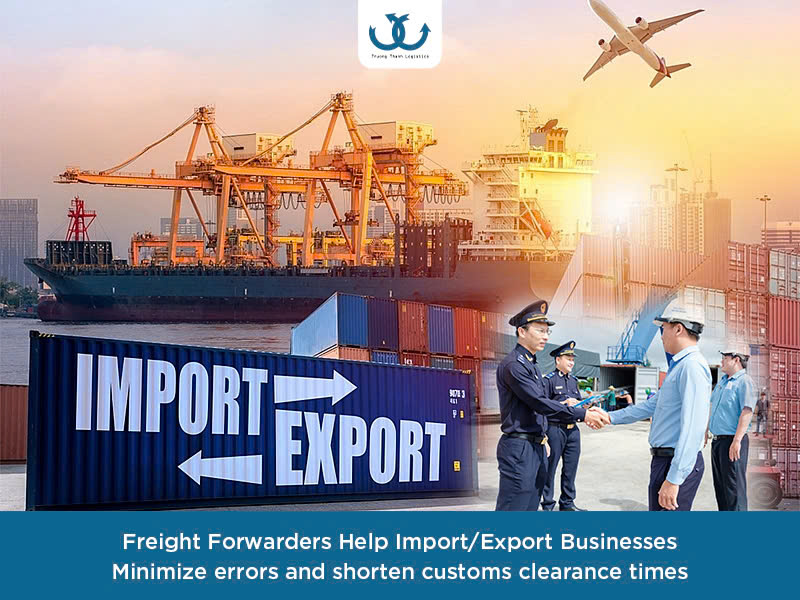
5. Comprehensive Logistics Consulting
A professional freight forwarder doesn’t just handle “pickup and delivery”—they also act as a strategic consultant:
+ Developing long-term logistics plans based on demand forecasts and seasonal trends.
+ Optimizing packaging to reduce freight costs while maintaining safety.
+ Combining multiple modes of transport (multimodal) to leverage the advantages of each type.
With these solutions, businesses not only save money in the short term but also improve their supply chain efficiency for the long run.
6. Comparison: With vs. Without a Freight Forwarder
|
Criteria |
With a Freight Forwarder |
Without a Freight Forwarder |
|
Shipping Process |
Scientifically coordinated, with optimized routes and transport methods. |
Businesses handle it themselves, often choosing the wrong route or method, leading to high costs. |
|
Document Handling |
Fully prepared and checked, reducing the risk of customs holds. |
Prone to declaration errors or missing documents, leading to fines or clearance delays. |
|
Delivery Schedule |
Always has a contingency plan for incidents. |
Is reactive and easily delayed when a vessel/flight schedule changes. |
|
Costs |
Optimized total costs due to experience and a broad partner network. |
Higher costs due to a lack of consolidation knowledge or optimized route selection. |
|
Legal Risks |
Advised on compliance with international laws and standards. |
More susceptible to regulatory violations, which can lead to reputational damage and fines. |
|
Scalability |
Has long-term logistics plans that support market expansion. |
Difficult to scale due to limited resources and experience. |
FAQ – Frequently Asked Questions about Freight Forwarders in Official Trade
1. How is a freight forwarder different from a carrier’s agent? A freight forwarder works independently, collaborating with multiple shipping lines/airlines to find optimal solutions, while a carrier’s agent only offers the services of the carrier they represent.
2. Can a business handle customs procedures without a freight forwarder? Yes, but if they are not knowledgeable about regulations and procedures, the risk of errors, delays, and additional costs will be very high.
3. Do freight forwarders offer door-to-door service? Most professional freight forwarders provide all-inclusive services, from the sender’s warehouse to the recipient’s warehouse.
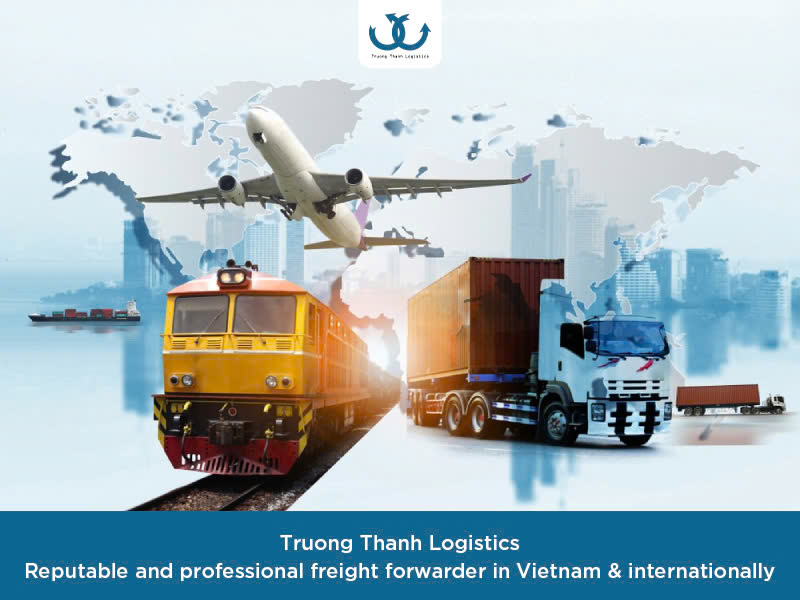
With over 13 years of experience in the logistics industry, Truong Thanh Logistics has partnered with hundreds of Vietnamese businesses to transport goods internationally through official channels quickly, safely, and cost-effectively.
We provide comprehensive freight forwarding services, including:
+ Consulting and optimizing transport plans.
+ Booking, coordinating, and tracking shipments.
+ Preparing, checking, and handling all documents.
+ Expediting customs clearance and resolving incidents.
+ Door-to-door shipping to all countries.
Our strengths lie in our team’s deep understanding of international laws and Vietnamese customs procedures, as well as our global network of partners, which helps to optimize both time and cost.
When you choose Truong Thanh Logistics, you’re not just hiring a transport service; you’re gaining a strategic partner throughout your entire official import and export journey.
For assistance with import and export information, international freight, sea transport or import entrustment, please contact Truong Thanh Logistics at the address:
Truong Thanh Logistics – Dedication, Prestige
Hotline: 0915 36 38 39
Headquarter: 5th Floor, Tower A, Song Da Building, Pham Hung, Tu Liem, Hanoi.
Email: sale@truongthanhjsc.com
info@truongthanhlogistics.com
Website: www.truongthanhlogistics.com
Hai Phong Branch
Address: R.A11, TTC Building, 630 Le Thanh Tong, Hai An, Hai Phong
Da Nang Branch
Address: 27 Nguyen Ba Lan, Ngu Hanh Son Ward, Da Nang.
HCMC Branch
Address: Room 41, 4th floor, Casanova building, 85 Nguyen Son street, Phu Thanh Ward, Ho Chi Minh City




